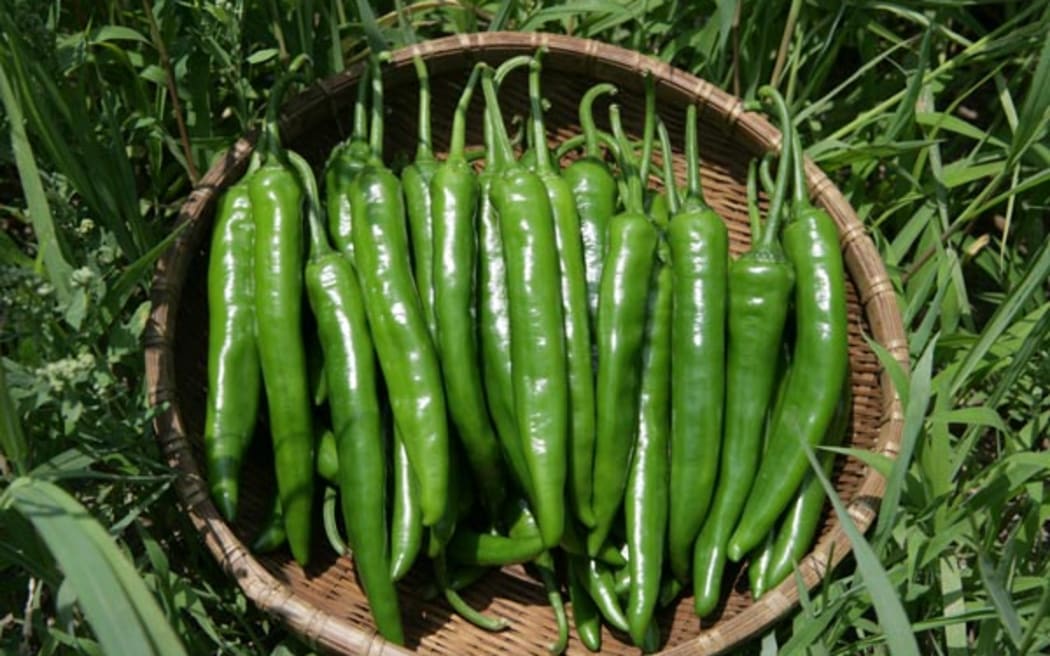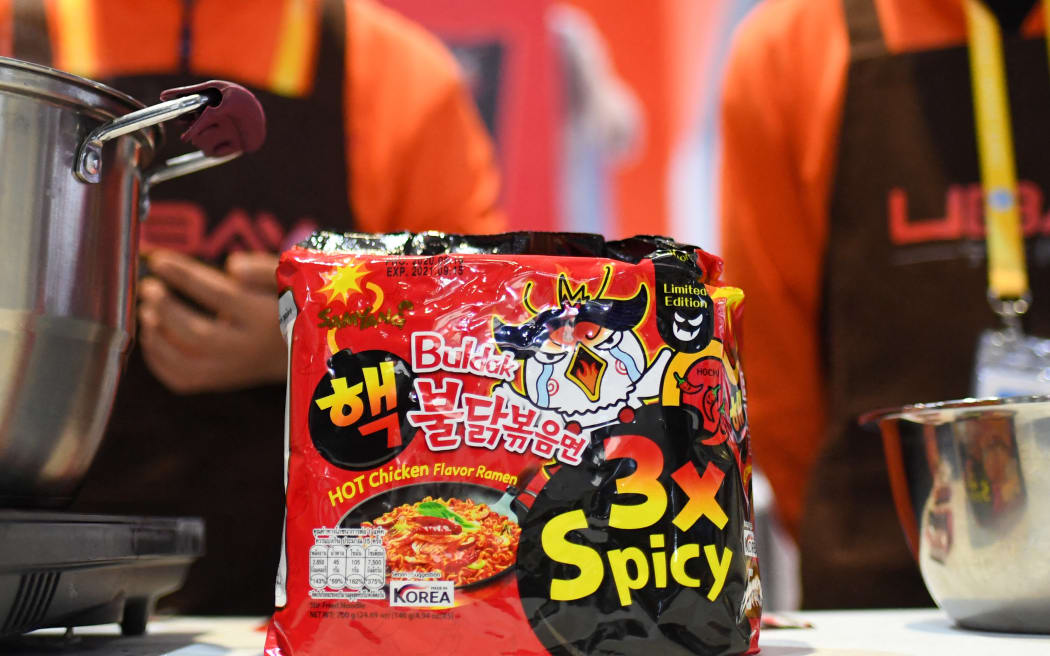Denmark says these instant noodles are ‘too spicy’, but how spicy are they?

Denmark has recalled several spicy ramen noodle products by South Korean company Samyang, claiming the capsaicin levels in them could poison consumers.
Capsaicin is an active component of chili peppers – it’s the thing that gives you a burning sensation when consumed. Three fiery flavours of Samyang noodles were withdrawn because of it: Buldak 3x Spicy & Hot Chicken, 2x Spicy & Hot Chicken, and Hot Chicken Stew.
However, the products continue to be sold elsewhere around the world, including New Zealand.
David Lee, the restaurateur behind some of Auckland’s finest eateries (including Gochu and Aigo, which draw from his South Korean heritage), said people’s sensitivity to spiciness varied.
“Some foods may be too spicy for some people. Especially as the spiciness level measured by the Scoville scale increases, more people are likely to find it ‘too spicy’.”
The Scoville scale is a measurement of pungency (spiciness or heat) of chili peppers and other substances.
Samyang noodles get their fiery flavour from Cheongyang red pepper, the hottest red pepper in Korea, and red pepper oil.

Cheongyang red peppers have an intensity of 10,000 – 23,000 Scoville Heat Units (SHU) on average – only marginally more than the average Serrano pepper, which has an SHU of 8000 – 22,000.
But both pale in comparison to the Carolina Reaper, which holds the title of World’s Hottest Chili, with a heat kick of 2,200,000 SHU.
Lee said he had noticed his patrons’ tolerance for spicy food had changed over the years.
“Nowadays more people enjoy spicy food, and many customers specifically want spicier food. This change may be due to increased access to foods from different cultures.”
As New Zealand continued to become more multicultural, so did its diverse and growing culinary scene.
Most New Zealanders ordering Sichuan noodles or an Indian ghost pepper curry had heard the question: ‘You want it hot, or Kiwi hot?’
“When determining the spice levels in our menus, we prioritise our customer feedback,” Lee said.
“Korean spiciness usually uses ingredients like gochujang or gochugaru, which are made of Korean chili, that give a strong, deep heat.
“In contrast, New Zealand’s spiciness tends to be milder and often incorporates chili peppers with fruity notes, as well as tabasco sauce for a tangy heat.”
Those not so inclined towards spicy food could increase their tolerance slowly by introducing small amounts of heat into their diet, Lee said.
“Start with milder foods and gradually increase the spiciness level. Eating with milk or yoghurt can help as well.”

Of course, that was only for those who wanted to – not everyone needed to jump straight into Buldak 3x Spicy & Hot Chicken, he said.
“While it might be fun and enjoyable for those who enjoy spicy food, it could be unpleasant for those not used to it. I once had a customer strongly complain after eating very spicy Korean fried chicken at my restaurant, even though we clearly marked it as extremely spicy on the menu.
“I believe the packaging of the mentioned Samyang ramen also clearly indicates how spicy it is.”
Many fans of Korean instant noodles find the product fiery, but irresistible. Those who wanted to enjoy the flavour without suffering could always use a portion of the sauce packets. But for those who relished the burning sensation, Lee said they could take it one step further.
“My favourite Korean instant noodle is Jin Ramyun. To make it spicier, I add extra Gochugaru, and I eat it with kimchi which is spicy as well. This way, I can enjoy a deeper and more intense spiciness.”
According to the news on Radio New Zealand




